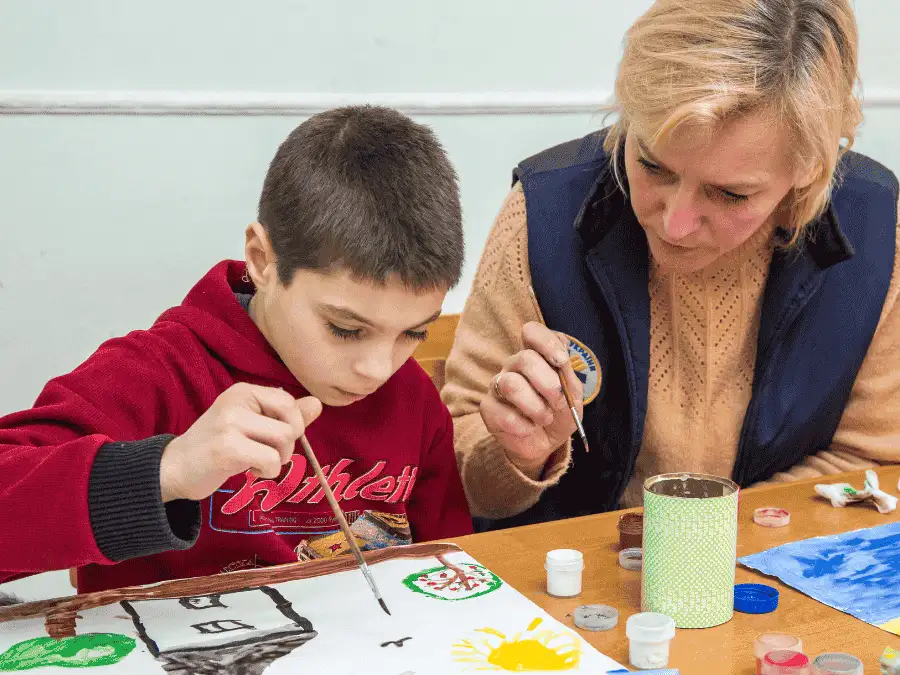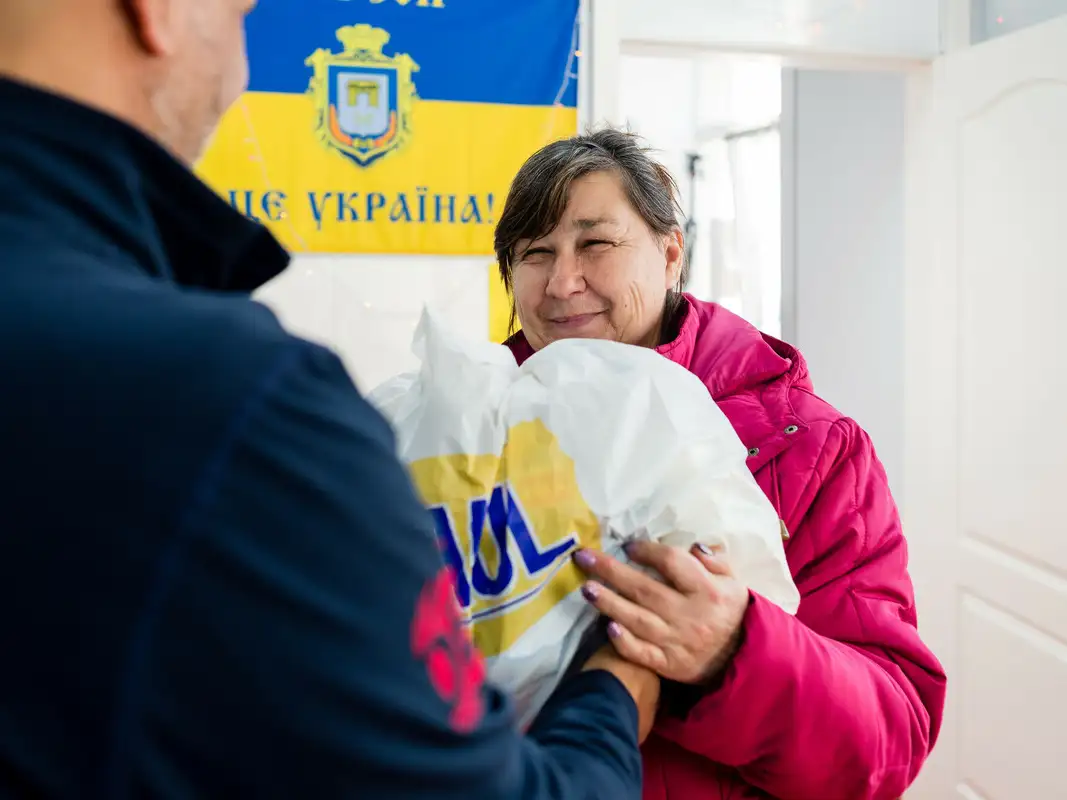Your generous contributions to CAFOD's Ukraine Humanitarian Crisis Appeal have reached thousands of vulnerable people, helping them to survive and rebuild their lives.


An art therapy session at one of the safe places set up by Caritas Ukraine.
For as the rain and the snow come down from heaven and do not return there but water the earth… so shall my word be that goes out from my mouth; it shall not return to me empty.
The power of words to inspire and unite us has fuelled human civilisation. Words enable us to share our ideas and stories, to encourage one another, to sing songs and to praise God. Sadly, they can also be used to diminish and divide.
Today marks four years since the full-scale invasion of Ukraine. The gruelling conflict has left many adults and children in need of mental health support. Thanks to your donations, our partners have harnessed the healing power of words—through one-on-one counselling and group therapy sessions—to help participants deal with the trauma of war.
The prophet Isaiah reminds us today of the power of God’s word. The word that spoke creation into existence falls gently on us like rain, bringing new life.
This Lent, can we open ourselves to God’s life-giving word, letting it come to fruition in the fertile ground of our hearts? And can we strive to honour the word of God, incarnate in Jesus, by using our words to bring healing and hope?
Prayer
Our Father who art in heaven,
hallowed be thy name.
Thy kingdom come,
thy will be done on earth as it is in heaven.
Give us this day our daily bread,
and forgive us our trespasses
as we forgive those who trespass against us,
and lead us not into temptation
but deliver us from evil.
Amen.
Act
Find out more about our work in Ukraine, as we mark four years since the full-scale invasion began.
Pray for the gift of peace for all those facing conflict.



